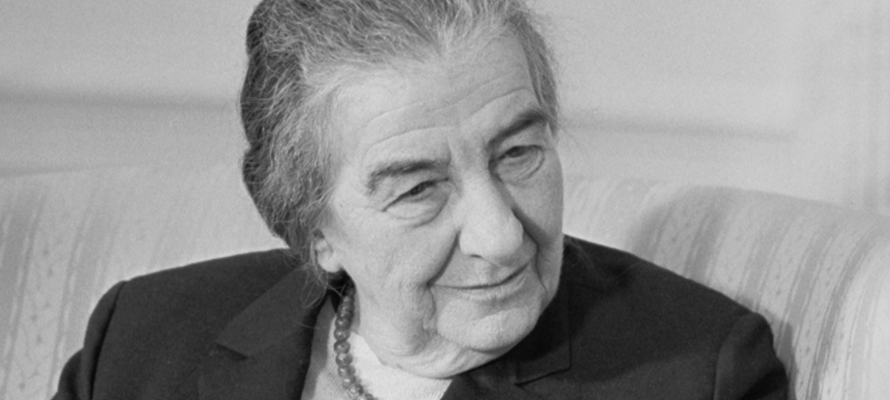
This week in Israel’s history includes the founding of Hezbollah; Israel elects its first female prime minister.
February 16, 1985: The Founding of Hezbollah
In the Iranian Revolution of 1978-1979, the US-supported leader, Mohammad Reza Shah Pahlavi (Shah of Iran), was ousted. The revolution was a rebellion against the Shah’s increasingly oppressive regime as well as the perception that the Shah’s government was simply a puppet of the secular, “corrupt” West. Since much of the Shah’s legislation involved secularizing and Westernizing Iranian society, the backlash resulted in a government that was religiously extreme.
The Shah was replaced by Shi’ite cleric Ayatollah Ruhollah Khomeini, ushering into power a conservative, religious Islamic Republic. As part of this post-revolution transformation, and as a response to Israel’s operations in Lebanon, Hezbollah was born. Hezbollah’s original mission was to attack the Israeli military.
The United States, the Gulf Cooperation Council, Canada, and Israel classify Hezbollah as a terrorist organization. The European Union and New Zealand have condemned Hezbollah’s military wing, but do not classify Hezbollah on the whole as a terrorist organization.
From the beginning, the elimination of the State of Israel has been one of Hezbollah’s primary goals. Hezbollah’s 1985 Arabic-language manifesto announces, “[O]ur struggle will end only when this entity [Israel] is obliterated”. According to Hezbollah’s Deputy-General, Na’im Qasim, destroying Israel is a core belief and the central reason for Hezbollah’s existence.
Here is a partial list of the terrorist attacks for which Hezbollah has been held responsible:
– Hijacking TWA flight 847 in 1985;
– The Lebanon hostage crisis from 1982 to 1992;
– The 1992 Israeli Embassy attack in Buenos Aires, Argentina, involvement in which Hezbollah operatives boasted (29 killed);
– The 1994 bombing of a Jewish cultural center in Argentina, for which Hezbollah claimed responsibility (85 killed);
– The 1994 Alas Chiricanas flight 901 attack in Panama, for which Hezbollah claimed responsibility (21 killed);
– The 1994 London Israeli Embassy attack (29 injured);
– The 1996 Khobar Towers bombing in Saudi Arabia (19 US servicemen killed);
– Providing “direct assistance” to al Qaeda, including training and explosives, to orchestrate the 1998 U.S. embassy bombings;
– The January 15, 2008 bombing of a U.S. Embassy vehicle in Beirut;
– The 2009 Hezbollah plot in Egypt, which led to the arrest of 49 men for planning attacks against Israeli and Egyptian targets in the Sinai Peninsula;
– The 2012 Burgas, Bulgaria bus bombing (6 killed); and
– Training Shi’ite insurgents against US troops during the Iraq War.
February 17, 1969: Golda Meir Sworn in as Israel’s First Female Prime Minister
Golda Meir was born Goldie Mabovitch on May 3, 1898, in Kiev, Russia. In 1906, she immigrated with her family to the United States. In high school, she became an active member of Young Poale Zion, which later became Habonim, the labor zionist youth movement. She spoke at public meetings, embraced socialist zionism and hosted visitors from Palestine.
In 1913, she began dating Morris Myerson. Before they married in 1917, Goldie made settling in Palestine (Israel) her precondition for marriage.
As a committed labor zionist and a dedicated socialist, Goldie and Morris left their jobs in America in 1921 to join a kibbutz in Palestine (Israel) together.
Throughout her young career, Golda held many political positions, including head of the Jewish Agency. She attended the Évian Conference and even dressed up as an Arab woman so she could travel to Jordan to meet with King Abdullah I to try to persuade him not to join the other Arab states in attacking Israel.
Golda considered it a great honor to have been one of 24 signatories (including two women) of the Israeli Declaration of Independence on May 14, 1948.
The first person to receive an Israeli Passport, Golda served as Ambassador to the Soviet Union, Minister of Labor and Foreign Minister before finally being elected Prime Minister of Israel in 1969. She was the first female prime minister and served from 1969 to 1974. Although her party won the 1973 elections, she resigned on April 11, 1974, and was succeeded by Yitzhak Rabin.
By: Penina Taylor, United with Israel
